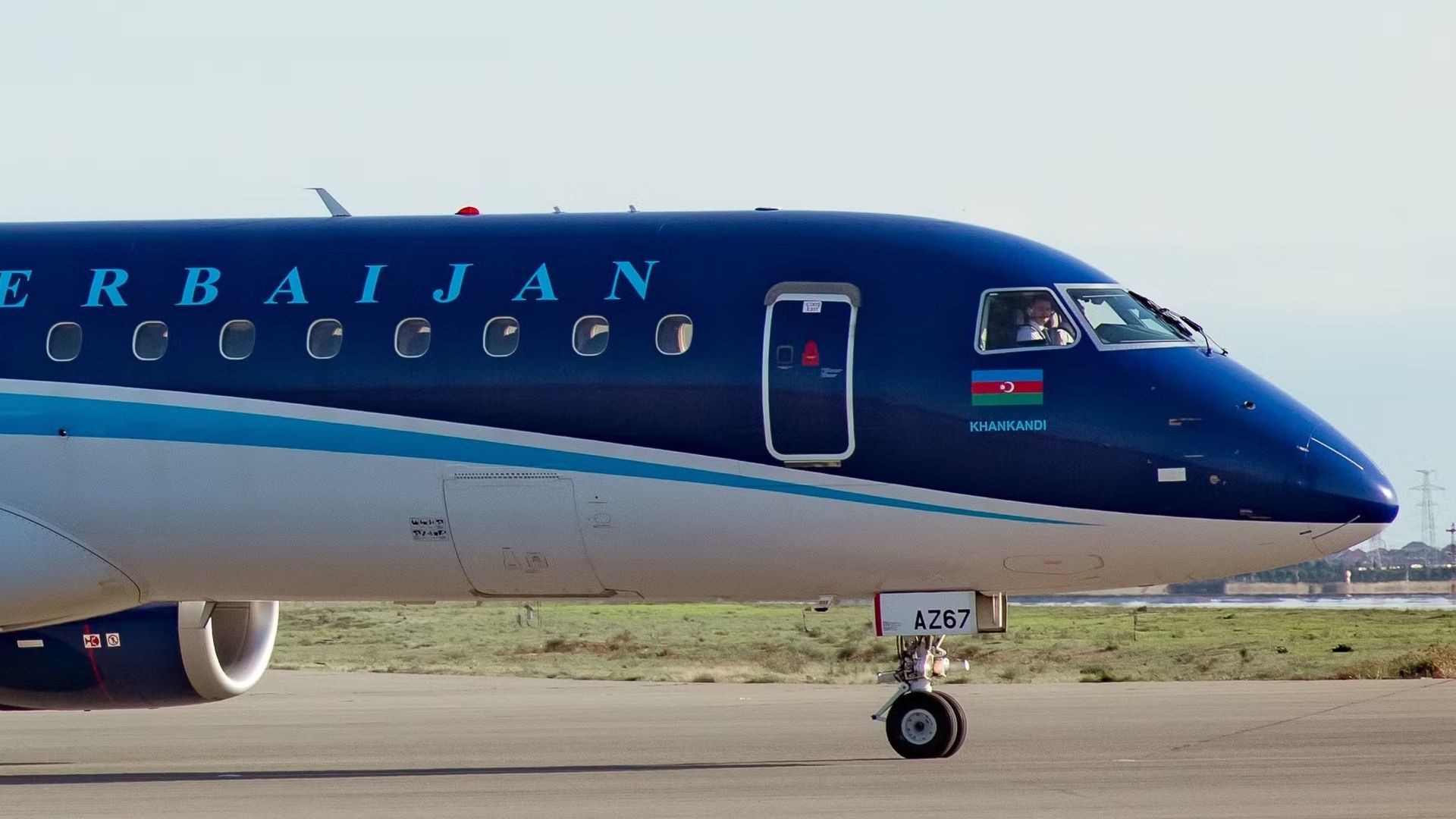World
Russia Acknowledges Responsibility for Downing of Azerbaijani Plane

On December 25, 2024, an Azerbaijan Airlines Embraer 190 was downed by Russian air defenses, resulting in the deaths of 38 individuals. Russian President Vladimir Putin confirmed in a meeting with Azerbaijani President Ilham Aliyev that missiles targeting a Ukrainian drone detonated near the passenger aircraft as it approached Grozny. The aircraft subsequently diverted and crashed near Aktau in Kazakhstan. In his statement, Putin not only accepted responsibility but also pledged financial compensation to the victims’ families.
The crash of Azerbaijan Airlines Flight J2-8243, which was traveling from Baku to Grozny, was precipitated when Russian air-defense missiles misfired. The detonation occurred close to the aircraft, peppering it with debris from the missile explosion. This damage led to critical failures in the aircraft’s stabilizers, hydraulics, and trim systems, ultimately resulting in the loss of control during its emergency landing attempt.
Details of the Incident and Investigation Findings
Initial reports indicated that the aircraft was struck by Russian air-defense fire while approaching Grozny amidst drone activity in the vicinity. A preliminary investigation by Kazakh authorities revealed that the fuselage was riddled with holes consistent with damage from external fragments, which aligned with a missile event. Further examinations uncovered debris from a Pantsir-S1 missile in the wreckage, substantiating claims of missile involvement.
In the immediate aftermath, officials in Baku quickly pointed to Russian air-defense activities as the cause of the crash. Despite expressing regret, the Russian government initially refrained from accepting full responsibility, offering alternative explanations while asserting that thorough investigations were ongoing. This ambiguity fueled accusations from Azerbaijan of a potential cover-up, straining diplomatic relations between the two nations.
It was not until October 9, 2025, nearly ten months after the incident, that Putin publicly acknowledged that two Russian missiles were responsible for the downing of the aircraft. Although Western aerospace regulators had long suspected Russian involvement, this admission marked a significant turning point in the ongoing investigation.
Implications for Affected Families and Geopolitical Concerns
The tragic accident underscores the broader safety implications of geopolitical conflicts, highlighting the dangers that can arise in commercial aviation when military operations are conducted in close proximity to civilian air routes. While the acknowledgment of responsibility by Putin may provide a measure of closure for the families of the victims, the effectiveness of the promised financial compensation remains to be seen.
For many families affected by this tragedy, the public admission of guilt from the Russian leader represents a long-awaited recognition of their loss. Furthermore, it signals a potential shift in the strained relationship between Russia and Azerbaijan, as both nations navigate the complexities of accountability and reconciliation.
Ultimately, incidents like the downing of Azerbaijan Airlines Flight 8243 emphasize the need for increased awareness of geopolitical risks associated with air travel. Passengers must continue to evaluate safety conditions and regional tensions when planning their journeys, as such conflicts can have dire consequences for civilian aviation.
-

 Top Stories3 months ago
Top Stories3 months agoTributes Surge for 9-Year-Old Leon Briody After Cancer Battle
-

 Entertainment4 months ago
Entertainment4 months agoAimee Osbourne Joins Family for Emotional Tribute to Ozzy
-

 Politics4 months ago
Politics4 months agoDanny Healy-Rae Considers Complaint After Altercation with Garda
-

 Top Stories4 months ago
Top Stories4 months agoIreland Enjoys Summer Heat as Hurricane Erin Approaches Atlantic
-

 World5 months ago
World5 months agoHawaii Commemorates 80 Years Since Hiroshima Bombing with Ceremony
-

 Top Stories3 months ago
Top Stories3 months agoNewcastle West Woman Patricia Foley Found Safe After Urgent Search
-

 Top Stories5 months ago
Top Stories5 months agoFianna Fáil TDs Urgently Consider Maire Geoghegan-Quinn for Presidency
-

 World5 months ago
World5 months agoCouple Convicted of Murdering Two-Year-Old Grandson in Wales
-

 World5 months ago
World5 months agoGaza Aid Distribution Tragedy: 20 Killed Amid Ongoing Violence
-

 World5 months ago
World5 months agoAristocrat Constance Marten and Partner Convicted of Infant Murder
-

 Top Stories4 months ago
Top Stories4 months agoClimbing Errigal: A Must-Do Summer Adventure in Donegal
-

 Top Stories4 months ago
Top Stories4 months agoHike Donegal’s Errigal Mountain NOW for Unforgettable Summer Views









